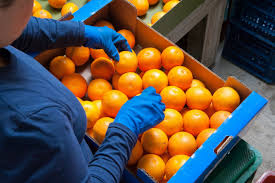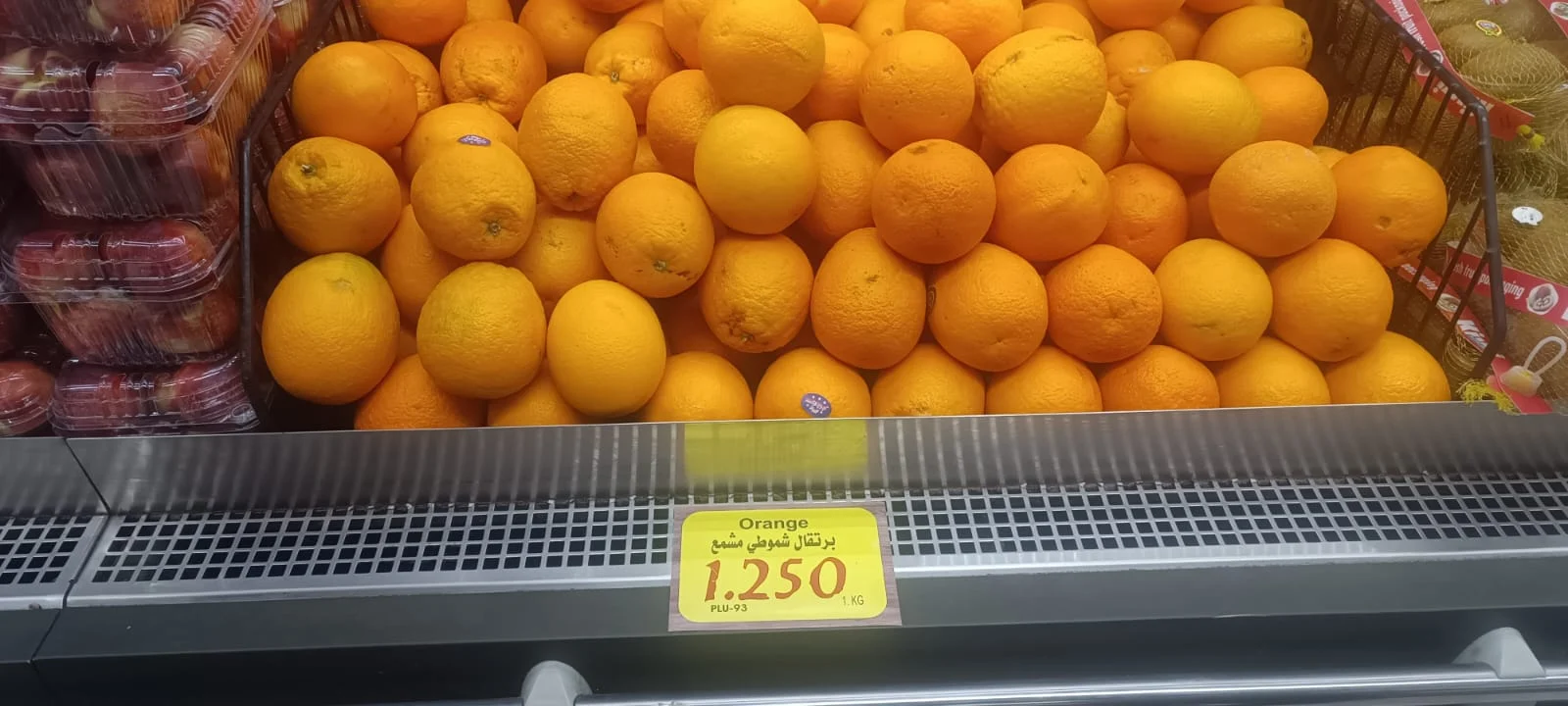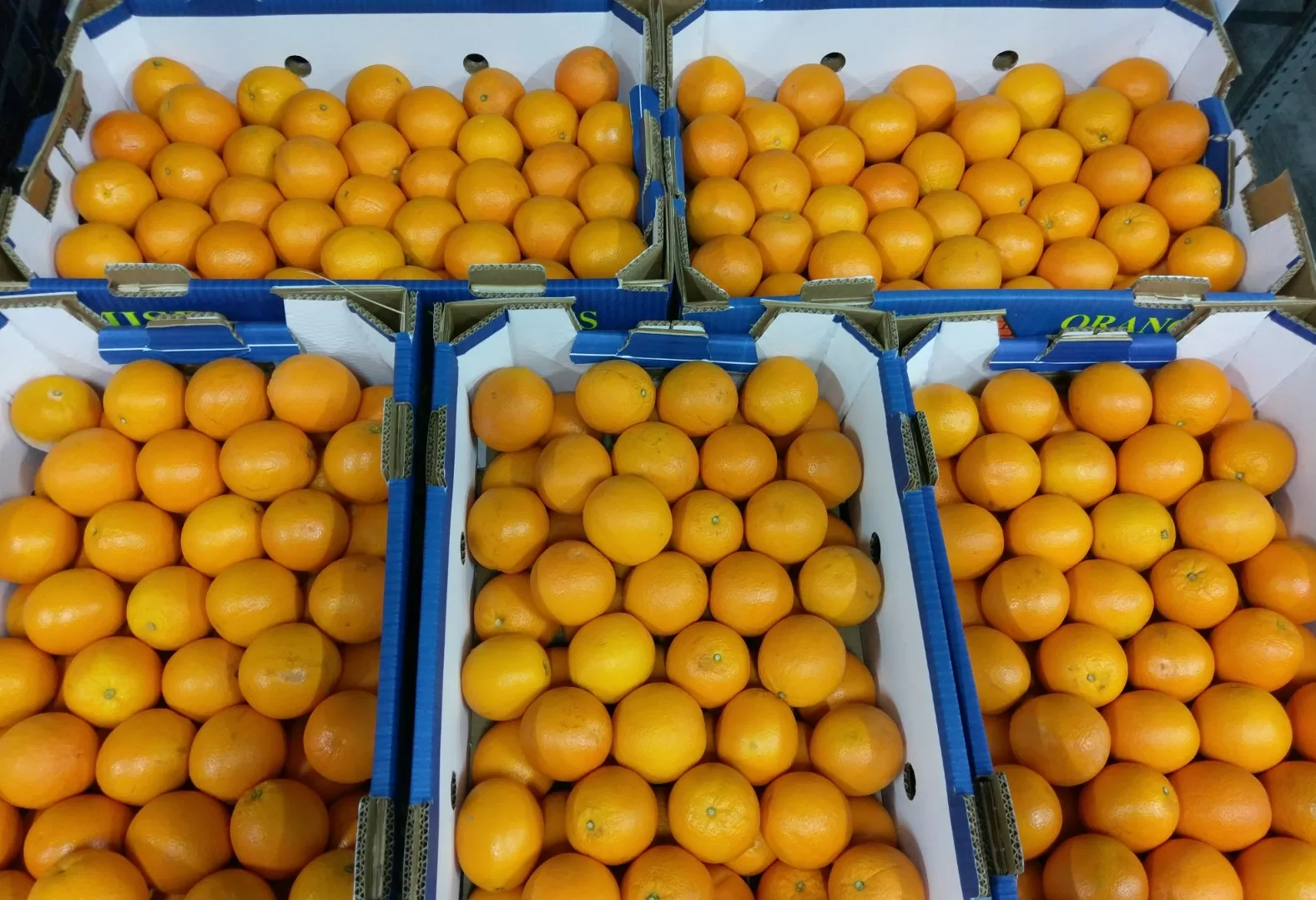Egypt’s oranges on a world tour – a sensual ambassador
- mai haikal

- Aug 22
- 4 min read
“Even before the first ray of sunlight touches the Nile, they already sparkle in the morning mist—round, golden jewels, heavy with sweet light.”
Here, among the lush green lines of countless groves, a silent conquest of the world begins every year. From these fragrant gardens, they begin their long journey: oranges born in the warm breath of Egypt, polished by hand, checked down to the smallest detail—so that when they reach foreign ports, they bring more than just taste. They bring with them a story of patience, of sun-drenched days, of a land that has found its place in the hearts and on the tables of the world.
In Egyptian culture, the orange represents vitality, hospitality, and festivity. In local markets, it is celebrated not only as a fruit but also as a symbol of sunshine and prosperity.

“From these sunny morning hours begins a journey as precisely planned as a royal pageant.”
Every tree, every fruit follows an invisible protocol—a dance of care, testing, and preparation before they sail out into the world. But behind the golden shimmer of each fruit lies more than just a symbol of Egyptian warmth. Numbers, routes, and trade flows draw the silent map of this journey—a web of business, craftsmanship, and passion that makes Egypt's oranges true ambassadors on the global stage.
“Some sail into the competition on rockets, others only with the wind of a slingshot at their backs,” said one of Spain’s leading orange producers—and between the lines, he let the bitter scent of the competition from Egypt resonate.
When sun meets sun—Amal & Don Paco in conversation
Dawn in the port of Rotterdam. Crates are being unloaded. Two oranges roll gently side by side amid the steam from the refrigerated containers.
Amal (Egyptian Orange):
“Even before the first ray of sun kisses the Nile, we sparkle in the morning mist—round, golden worlds, heavy with sweet light. I come from a country where 70% of all citrus groves are orange trees. Every year, we harvest over 3.4 million tons, mostly Valencia and Navel. Our season? December to May—a wide arc that illuminates Europe's winter.”
Don Paco (Spanish Orange):
“Impressive, Amal. I'm Don Paco, born in Valencia. Spain produces around 3.2 million tons of citrus fruit a year, of which about 1.6 million tons are oranges. We love Valencians too—but our season is a bit shorter, from November to April. Our advantage? A price per kilo that's often almost twice as high as your Egyptian one—thanks to centuries of tradition and, let's just say… well-targeted marketing.”
Amal:
(smiles) “Yes, I've heard that. Some sail into the competition on rockets—and some with only the wind of a slingshot at their backs. But our slingshots hit far: we export in all directions—Russia, China, Saudi Arabia, and the Netherlands. In 2024, our citrus fruits brought in over 800 million US dollars, and in the first four months of 2025 alone, that figure was 492 million.”
Don Paco:
“Not bad. Our main markets are in the EU—Germany, France, and Italy. We score points with our proximity to our customers and our adherence to strict EU quality standards, which we have met for decades. But I have to say, your export code system sounds exemplary.”
Amal:
“Only registered farms are allowed to export. Every fruit is checked: flawless skin, no prohibited pesticides, sorted by size, and polished with wax. Our strength lies in large quantities, good value for money, and a season that fills your gap.”
Don Paco:
“Sounds like we're more like baton-passing partners in the great citrus race than rivals. You start when we leave—and keep the winter market flowing.”
Amal:
“Exactly. And we both carry sunshine within us—whether from the Mediterranean or the Nile. Perhaps we are not enemies, Paco. Perhaps we are ambassadors.”
Don Paco:
“Two ambassadors of the sun—I like that. May our shells shine and the world reach out to us.”
As Amal and Don Paco disappear into the rocking waves, the warm golden light fades in. The clinking of the ship's bells and the distant babble of a market echo softly from the speakers.

The heart of the citrus world
70% of Egyptian citrus groves are orange trees—silent, patient giants that bring the country its fruity glory year after year. The fertile soils of the Nile Delta and the sunny climate create ideal conditions for varieties like Valencia and Navel, prized for their intense flavor and high juice content.
The Valencia variety is the queen: late-harvested, long-lasting, and designed for long journeys across oceans and continents.
These fruits are in demand: Russia, China, Saudi Arabia, the Netherlands, Turkey, the EU, and Arab countries eagerly await them in the winter months.
The journey begins with a code
Their first “travel marker” is the farm coding system. Starting in December, the approved packing stations will open their doors, and specialist engineers and quarantine inspectors will check each crate.
The requirements of each importing country—from pesticide limits to packaging to special health certificates—are meticulously met.
Why the world loves our oranges
• Sweet taste, delicate skin, captivating aroma—irresistible for many markets.
• High production volumes, especially from Valencia, ensure steady deliveries.
• Price advantage over many competitors.
• Complete control from planting to port.
Numbers that shine
In 2024, the export value of citrus fruits exceeded USD 800 million—a significant contribution to the national economy. This success is based on:
• Expansion of high-quality cultivation areas,
• improved packaging and cold chains,
• Development of new markets in Asia, Africa, and Latin America,
• Benefits from free trade agreements with important economic blocs
• New infrastructure projects, such as the port in Damietta, shorten transport times and ensure the freshness of the goods.

So they travel on—in the holds of ships across the oceans, in crates at markets, in hands that admire their brilliance. Each orange is a shining messenger from the land of the Nile, bringing sunshine to the winter days of distant cities. And somewhere, between the sweet drop of juice on a tongue and the first bite into its tender flesh, shimmers the golden thread that connects Egypt to the world.















Comments